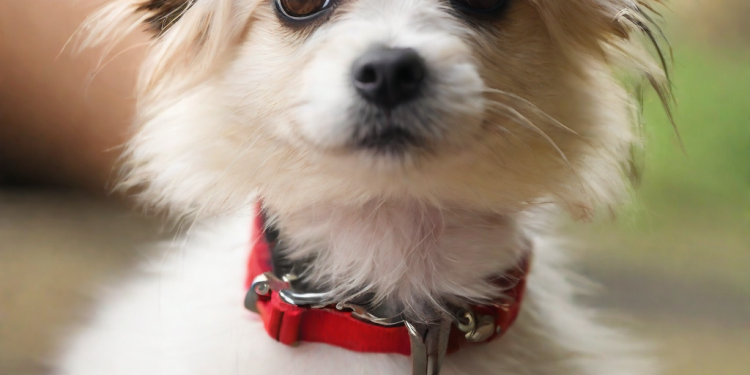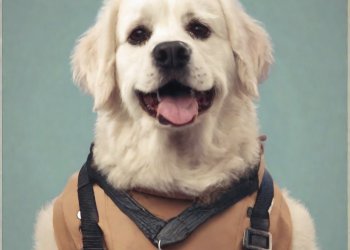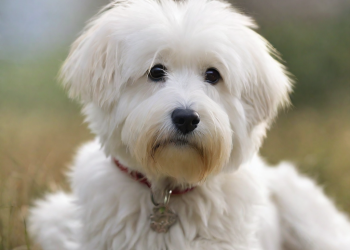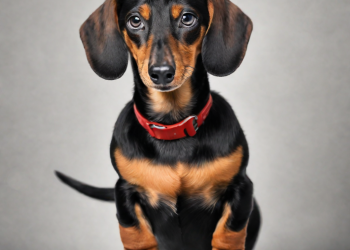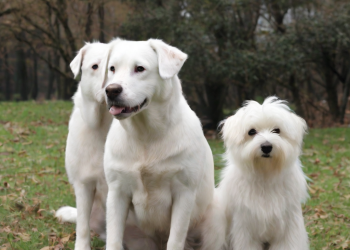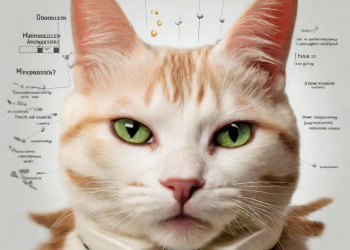Small dogs for adoption that do not grow in Spain
After researching the subject, I have discovered that there is a high demand for small dogs for adoption that do not grow up in Spain. In this article, I will inform you about the adoption options for these dogs and why it is important to consider this option instead of purchasing a pet. Keep reading to discover more about small dogs for adoption that don’t grow up in Spain!
Adopt a small dog that won’t grow up and change his life forever!
Discover why these adorable fur babies are the best choice for your home and how you can make a difference in the life of an animal in need.
Adopting a small dog that won’t grow is a decision that can bring great rewards! In addition to having a faithful and loving companion, you will be giving a second chance to an animal that needs it. In our article you will find valuable information about the advantages of adopting a small dog, how to prepare for their arrival and where to find them. Don’t miss out and change the life of an adoptable dog today!
II. What are small dogs that don’t grow?
– Definition of small dogs that do not grow
– Most common breeds that fall into this category
– Advantages and disadvantages of having a small dog that does not grow
What are small dogs that don’t grow?
Small dogs that do not grow are those that, due to their genetics, do not reach a considerable size in their adulthood. These breeds are often sought after for their compact size and adorable appearance. Some of the most common breeds that fall into this category are:
- Chihuahua
- Pomeranian
- yorkshire terrier
- Shih Tzu
- Bichon Frize
However, it is important to keep in mind that not all small dogs are small in size. Some breeds, such as the French Bulldog or the Boston Terrier, may be considered small but do not stop growing in their adulthood.
Some of the advantages of having a small dog that does not grow are:
- They are ideal for living in small spaces
- They are easy to transport
- They tend to be cheaper in terms of food and care
On the other hand, some of the disadvantages can be:
- Increased susceptibility to health problems, such as a dislocated kneecap or breathing problems
- They require more attention and care due to their fragility
- They can be more difficult to train due to their size and temperament
III. Why adopt a small dog that won’t grow?
Adopting a small, non-growing dog can be a great option for those looking for a pet. Below are some reasons why adopting a small, non-growing dog may be a good decision:
Benefits of adopting instead of buying
- By adopting a small dog that will not grow, you are giving an animal that has been abandoned or abused a second chance.
- It contributes to reducing the overpopulation of dogs in shelters and shelters.
- Avoid supporting the irresponsible breeding of small dogs that do not grow.
- You save money, since adoption costs are much lower than buying a purebred dog.
Reasons to choose a small dog that does not grow
- Small dogs that do not grow are usually easier to handle and transport due to their size.
- They are ideal for people who live in small spaces or who cannot do intense physical activities.
- Some small, non-growing dog breeds are known for being excellent companions and very affectionate.
- By not growing, there is no need to worry about the size the dog may reach in the future.
Contribution to the fight against animal abandonment
Adopting a small dog that does not grow is also a way to help combat the problem of animal abandonment in Spain. By rehoming an abandoned dog, you provide it with love and care, and prevent it from ending up on the street or in a shelter.
Furthermore, adopting fosters a culture of responsibility and commitment towards animals, as it gives an opportunity to those who have been abandoned or mistreated.
IV. Adoption options for small dogs that do not grow in Spain
In Spain, there are various options to adopt a small dog that does not grow. Below, some of the most common will be mentioned and their advantages and disadvantages will be explained.
Animal shelters and shelters
- Some of the best known in Spain are: Small Dogs for Adoption that do not grow, Adopt a Small Dog, Dog Adoption in Spain.
- Advantages: The dogs are usually vaccinated, dewormed and sterilized. In addition, shelters and shelters offer follow-up and advice after adoption.
- Disadvantages: There may be a waiting list and the adoption process may be longer than other options.
Dog rescue associations
- Examples of associations in Spain: SOS Small Dogs for Adoption, Adopt a Four-Legged Friend , Rescue of Abandoned Dogs.
- Differences with shelters: The associations are usually smaller and do not have a physical place to house the dogs, so the animals are in temporary homes.< /span>
- Advantages: By being in a foster home, dogs can be more socialized and adapted to living in a home.
- Disadvantages: They may have fewer resources than shelters and the adoption process may be longer.
Direct adoption by individuals
- Precautions to take into account: It is important to ensure that the dog does not come from an illegal breeding or an irresponsible breeder. It is also advisable to ask for information about the animal’s medical history.
- Advantages: It can be a faster and more direct option to adopt a small dog that does not grow.
- Disadvantages: It is not always certain that the dog has received the necessary care and there may be a greater risk of health problems in the future.
In any adoption option, it is important to keep in mind that you are giving a dog that has been abandoned or abused a second chance. Furthermore, by adopting you are contributing to the fight against animal abandonment in Spain.
V. Adoption options for small dogs that do not grow in Spain
In Spain, the demand for small dogs for adoption that do not grow has increased in recent years. Many people are looking to have a pet that is easy to handle and that does not take up much space in their homes. However, adopting these dogs can be a more responsible and rewarding option than purchasing. In this section, the different adoption options for small dogs that do not grow in Spain will be presented, as well as the requirements and process to follow.
Animal shelters and shelters
- Some of the best known in Spain are:
- The Society for the Protection of Animals and Plants of Madrid
- The Association for the Protection of Animals and Plants of Barcelona
- The Association for the Protection of Animals and Plants of Valencia
- Advantages of adopting from a shelter or shelter:
- Dogs are usually vaccinated and sterilized.
- An evaluation of the dog is carried out before adoption
- Counseling and follow-up offered after adoption
Dog rescue associations
- Examples of associations in Spain:
- The National Association of Friends of Animals
- The Association for the Defense of Animals and Nature
- The Association for the Protection of Animals and Plants of Seville
- Differences between shelters and associations:
- Associations are usually smaller and depend on donations
- They may have a more specific selection of small dogs that do not grow
- They offer more personalized attention
Direct adoption by individuals
- Precautions to consider:
- Make sure the dog does not come from illegal breeding
- Ask for information about the dog’s health and behavior
- Make a visit to the current owner’s home to meet the dog
- Advantages and disadvantages of this option:
- It may be a cheaper option
- You can learn more about the dog before adopting
- There is no follow-up after adoption
Requirements and adoption process
Before adopting a small dog that will not grow, it is important to meet certain requirements and follow a process established by the organization or individual offering the dog for adoption. Some of the aspects to take into account are:
- Documentation required: Identification, proof of address, and a letter of recommendation from a veterinarian may be required.
- Interview and evaluation of the adopter: an interview will be carried out to get to know the adopter and evaluate if he or she is suitable to care for the dog.
- Costs associated with adoption: in some cases, a donation may be requested to cover the costs of caring for the dog.
- Estimated time of the adoption process: it may vary depending on the organization or individual, but on average it can take between 1 and 2 weeks.
What to take into account when choosing a small dog that will not grow?
When choosing a small dog that will not grow, it is important to consider certain aspects to ensure good coexistence and care of the animal. Some of them are:
- Breed Characteristics: Each breed has its own characteristics and needs, so it is important to do your research and choose one that suits the adopter’s lifestyle.
- Age of the dog: It is important to consider the age of the dog as it can influence its energy level and grooming needs.
- Medical history and special needs: It is necessary to know the dog’s medical history and if it has any special needs in order to provide appropriate care.
- Compatibility with other animals and children: If you have other animals or children at home, it is important to choose a dog that is compatible with them.
Care and needs of a small dog that does not grow
Like any other pet, small dogs that are not growing require care and attention to maintain their health and well-being. Some of the aspects to take into account are:
- Proper nutrition: it is important to provide a balanced diet appropriate to the dog’s needs.
- Exercise and physical activity: Even though they are small dogs, they also need exercise to stay healthy and happy.
- Hygiene and coat care: It is necessary to brush and bathe the dog regularly to keep its coat in good condition.
- Vet Visits and Vaccinations: It is important to take your dog to the vet regularly and keep their vaccinations up to date.
- Education and training: it is necessary to educate the dog and teach it good habits for a harmonious coexistence.
Myths and facts about small dogs that do not grow
There are many myths and misunderstandings about small dogs that do not grow, which can lead to a poor choice when adopting. Some of them are:
- Debunk common myths about these breeds: such as that they are less active or less intelligent than large dogs.
- Clear up misunderstandings about their temperament and behavior: Every dog is unique and their personality is not determined by their size.
- Information about health problems associated with certain breeds: it is important to investigate possible diseases or health problems that certain breeds of small dogs may present.
Testimonials from adopters of small dogs that do not grow
To learn more about the experience of adopting a small dog that does not grow in Spain, you can read testimonies from people who have gone through this process. Some of the aspects they can mention are:
- Experiences of people who have adopted small dogs that do not grow in Spain.
- Advantages and disadvantages based on your personal experience.
- Advice for future adopters.
Additional Resources
For those interested in adopting a small dog that does not grow up in Spain, additional resources can be found online that may be helpful. Some of them are:
- Links to shelters, shelters and rescue associations in Spain.
- Websites with information on adopting small dogs that do not grow.
- Articles related to the topic.
References
For the research of this article, various reliable sources and studies on animal adoption in Spain have been used. Some of them are:
- National Association of Friends of Animals
- Society for the Protection of Animals and Plants of Madrid
- Statistics on animal adoption in Spain
Annexes
To complement the information presented in this article, you can find annexes with images, infographics and videos related to the topic. Some of them are:
- Images of small dogs that do not grow up for adoption.
- Infographics about the adoption process in Spain.
- Videos related to the topic.
SAW. What to take into account when choosing a small dog that will not grow?
When choosing a small dog that will not grow up to adopt, it is important to take into account certain aspects that will help you make the best decision for you and the dog. Below are some considerations to keep in mind:
Breed characteristics
- Research the characteristics of the breed of the dog you are considering adopting.
- Some breeds may be more active or need more care than others.
- Consider whether the breed fits your lifestyle and whether you will be able to provide it with the necessary care.
Dog age
- Some small dogs that do not grow up through adoption may be puppies, while others may be adults.
- Consider whether you are prepared to care for a puppy or whether you prefer an adult dog that is already trained.
- It is also important to note that older dogs may have special medical needs.
Medical history and special needs
- Some small dogs that do not grow up through adoption may have health problems or special needs.
- Find out about the dog’s medical history and whether it requires any additional care.
- Consider whether you are willing to provide the necessary care and whether you have the resources to do so.
Compatibility with other animals and children
- If you already have other animals at home, it is important to consider whether the dog you want to adopt is compatible with them.
- If you have children, it is also important to ensure that the dog is friendly and suitable to live with them.
- Some breeds may be more territorial or have stronger temperaments, so it is important to take these factors into account before adopting.
Tips for a good choice
- Visit the dog in person before making a decision.
- Ask the shelter or shelter staff about the dog’s behavior and personality.
- If possible, spend time with the dog before adopting it to see if there is a connection between you.
- Don’t be swayed just by the dog’s appearance, but also by its temperament and needs.
VII. Care and needs of a small dog that does not grow
Small dogs that do not grow, also known as miniature dogs, require specific care and attention to ensure their well-being and health. Below are some of the most important needs to consider when adopting one of these adorable companions.
Proper nutrition
Small, non-growing dogs have a faster metabolism than normal-sized dogs, so they need an adequate and balanced diet to stay healthy. It is important to choose a high-quality food adapted to your specific nutritional needs.
Exercise and physical activity
Although small dogs do not need as much exercise as large dogs, it is important that they get physical activity daily to stay fit and stimulate their mind. Short walks and games at home are enough to meet your exercise needs.
Hygiene and coat care
Small, non-growing dogs often have long, silky coats that require regular grooming. It is important to brush them frequently to prevent the formation of knots and keep their coat healthy and shiny. It is also advisable to take them to a dog groomer for a proper haircut from time to time.
Vet visits and vaccinations
Like any other pet, small dogs that are not growing need regular visits to the vet to keep their health in optimal condition. Additionally, it is important to keep your vaccination schedule up to date to prevent illness.
Education and training
Small dogs that are not growing can be just as intelligent and obedient as normal-sized dogs, so it is important to educate and train them properly. This includes teaching them basic commands, socializing them with other dogs and people, and setting clear limits and rules.
Myths and facts about small dogs that do not grow
There are many myths and misunderstandings about small dogs that do not grow, so it is important to clear them up to make an informed decision when adopting one of these companions. Some of the most common myths are:
- Small dogs are more nervous and aggressive than large dogs.
- Small dogs don’t need exercise.
- Small dogs are more prone to health problems.
In reality, a dog’s temperament depends on its education and socialization, not its size. Additionally, all dogs need exercise, regardless of their size, and there is no evidence that small dogs are more prone to health problems than large dogs.
It is important to be properly informed and not be carried away by false myths when considering adopting a small dog that will not grow.
Testimonials from adopters of small dogs that do not grow
There is nothing better than knowing the experience of other people who have adopted small dogs that do not grow to have a clearer idea of what it means to have one of these companions. Some of the most common testimonials are:
- Small dogs are perfect for living in apartments or small spaces.
- They are excellent travel companions.
- They are very affectionate and loyal.
These testimonials show that small dogs that do not grow can be an excellent choice for any type of home and that they are loving and faithful companions.
Additional Resources
If you are considering adopting a small, non-growing dog, there are numerous resources available to help you in the process. Some of them are:
- Links to shelters, shelters and rescue associations in Spain that have small dogs for adoption.
- Websites with information on adopting small dogs that do not grow.
- Articles related to the topic that can give you more information and useful tips.
These resources can be a great help in finding the perfect dog for you and making sure you are prepared to give him a loving and responsible home.
References
To prepare this article, various reliable sources and studies on animal adoption in Spain have been used. Some of the references used are:
- Study on the abandonment of animals in Spain carried out by the Affinity Foundation.
- Information provided by animal shelters and shelters in Spain.
- Articles and studies on the behavior and characteristics of small dogs that do not grow.
Annexes
To complement the information in the article, some annexes have been included that may be of interest to readers:
- Pictures of small dogs that do not grow up for adoption so you can see how adorable they are.
- Infographics about the adoption process in Spain so you can have a clear idea of what it entails.
- Videos related to the topic that can give you more information and testimonies from adopters.
We hope that these annexes are useful and complement the information in the article in a visual and entertaining way.
VIII. Myths and facts about small dogs that do not grow
There are many myths and misunderstandings surrounding small dogs that do not grow, which can raise doubts for those considering adopting one. Below, we will debunk some of the most common myths and clarify some facts about these adorable pets.
Debunking common myths about these breeds
- One of the most common myths is that small dogs that are not growing are less active and need less exercise than larger breed dogs. However, this is not necessarily true. While it is true that some small dogs may be quieter, each dog is unique and his activity level will depend on his individual personality and needs.
- Another myth is that small dogs that do not grow are more fragile and delicate than larger breed dogs. While it is true that some breeds may be more prone to certain health problems, this does not mean that they are less resistant or require special care. As with any pet, it is important to be informed about the health and care needs of each particular breed.
Clear up misunderstandings about your temperament and behavior
- A common misconception is that small dogs that are not growing are more aggressive or nervous than larger breed dogs. However, this is not true. A dog’s temperament depends largely on its upbringing and socialization, not its size. With proper training and early socialization, small dogs can be as friendly and well-adjusted as any other dog.
- Another misconception is that small dogs that do not grow are more difficult to train than larger breed dogs. This may be because they are often indulged in unwanted behaviors due to their size, but with proper and consistent training, small dogs can be just as obedient and well-trained as any other dog.
Information about health problems associated with certain breeds
It is important to note that some small dog breeds may be more prone to certain health problems, such as respiratory problems in brachycephalic (short-nosed) dogs or spinal problems in dogs with short legs. However, this does not mean that all dogs of these breeds will suffer from these problems. When adopting a small, non-growing dog, it is important to research his breed and be prepared to provide him with the necessary care in case he is prone to any particular health problems.
In short, it is important not to get carried away by myths and misunderstandings about small dogs that do not grow. Each dog is unique and his size does not determine his personality, temperament or care needs. By adopting a small dog that will not grow, you will be giving an opportunity to an animal that really needs it and you will be able to enjoy a faithful and loving company in your home.
IX. Adoption options for small dogs that do not grow in Spain
In Spain, the adoption of small dogs that do not grow is an increasingly popular option. Below are the different adoption options available in the country, as well as the requirements and care necessary to have a pet with these characteristics.
Animal shelters and shelters
- There are numerous shelters and animal shelters in Spain that house small dogs for adoption that do not grow.
- Some of the best known are the Society for the Protection of Animals and Plants of Madrid, the Association for the Protection of Animals and Plants of Valencia or the Association for the Protection of Animals of Barcelona.
- Adopting from a shelter or shelter is an excellent option, since you are helping an animal that has been abandoned and giving it a second chance.
Dog rescue associations
- Dog rescue associations are also an option to adopt small dogs that do not grow up in Spain.
- Some of the best-known associations are the National Association of Friends of Animals (ANAA), the Association for the Protection of Animals and Plants of Seville or the Association for the Protection of Animals of Malaga.
- Unlike shelters, rescue associations usually have fewer animals and focus on rescuing dogs from the streets or abusive situations.
Direct adoption by individuals
- Another option is to adopt directly from individuals who are looking for a new home for their small dog that is not growing.
- It is important to use caution when choosing this option, as there is no guarantee that the dog has received the necessary care or has a good temperament.
- However, it can be a good option for those looking for a specific breed or a dog with certain characteristics.
Requirements and adoption process
The adoption process may vary depending on the option chosen, but in general, certain requirements must be met and a similar process must be followed:
Necessary documentation
- It is necessary to present official identification and proof of address.
- Some organizations may require an adoption contract and/or a questionnaire to evaluate the suitability of the adopter.
Interview and evaluation of the adopter
- In most cases, an interview and/or home visit will be conducted to assess whether the adopter is suitable to own a dog.
- The aim is to ensure that the dog will be well cared for and will have a suitable home.
Costs associated with adoption
- In some cases, payment of an adoption fee may be required to cover the costs of caring for and maintaining the dog.
- This fee may vary depending on the organization and may include sterilization, vaccination and microchipping of the dog.
Estimated time of the adoption process
- The adoption process can take from a few days to several weeks, depending on the organization and the availability of dogs for adoption.
- It is important to be patient and understand that the goal is to find the best home for the dog.
What to take into account when choosing a small dog that will not grow?
When choosing a small dog that will not grow, it is important to consider the following characteristics:
- Breed: Each breed has its own characteristics and needs, so it is important to do your research and choose one that suits your lifestyle.
- Age: Younger dogs may require more attention and training, while older dogs may have health problems.
- Medical history and special needs: It is important to know the dog’s medical history and whether it has any special needs in order to provide appropriate care.
- Compatibility with other animals and children: If you already have other animals or children at home, it is important to choose a dog that is compatible with them.
In summary, adopting small dogs that do not grow up in Spain is an excellent option to have a pet and contribute to the fight against animal abandonment. By knowing the different adoption options, the requirements and necessary care, and taking into account the characteristics of the dog, you can find the perfect companion for your home.
Small dogs for adoption that do not grow in Spain
In Spain, the adoption of small dogs that do not grow is an issue of great importance due to the high demand for these animals in homes. In this article, relevant information about this adoption option in the country will be addressed, with the purpose of informing and promoting this practice as a way to fight against animal abandonment.
What are small dogs that don’t grow?
- Small dogs that do not grow are those that, upon reaching adulthood, do not exceed a certain size and weight.
- Some of the most common breeds that fall into this category are the Chihuahua, Yorkshire Terrier, Bichon Frize, and Pomeranian.
- Among the advantages of having a small dog that does not grow are its compact size, its ease of adapting to small spaces and its low maintenance cost.
- However, it is also important to consider the disadvantages, such as its fragility and susceptibility to certain health problems.
Why adopt a small dog that won’t grow?
- Adopting a dog instead of buying one contributes to the fight against animal abandonment and promotes responsible adoption.
- Choosing a small dog that does not grow can be an excellent option for those looking for a small pet with specific characteristics.
- Additionally, by adopting a small dog that will not grow, you are giving a second chance to an animal that has been abandoned or rescued from abusive situations.
Where to adopt a small dog that does not grow in Spain?
There are several options to adopt a small dog that does not grow up in Spain, including:
Animal shelters and shelters
- Some of the best-known shelters and shelters in Spain are the Society for the Protection of Animals and Plants of Madrid, the Association for the Protection of Animals and Plants of Valencia and the Association for the Protection of Animals of Barcelona.
- Adopting from a shelter or shelter offers the advantage of being able to meet the animal before adopting it and receive advice on its care.
Dog rescue associations
- Examples of dog rescue associations in Spain are the National Association of Friends of Animals (ANAA) and the Animal and Plant Protection Association of Seville (APAP).
- Unlike shelters, rescue associations are usually smaller organizations and rely heavily on volunteers and donations.
Direct adoption by individuals
- This option involves adopting a dog directly from its current owner, either because they can no longer care for it or because they have decided to give it up for adoption.
- It is important to exercise caution when adopting directly from individuals, since complete information about the animal and its history is not always available.
- Among the advantages of this option is the possibility of meeting the dog in its current environment and obtaining first-hand information about its behavior and needs.
Requirements and adoption process
The adoption process may vary depending on the organization or individual with whom it is carried out. However, in general you can expect the following requirements and steps:
- Present documentation that proves the identity and capacity of the adopter to care for the animal.
- Conduct an interview and evaluation of the adopter to ensure that it is a responsible adoption.
- Pay an adoption fee, which may vary depending on the organization or individual.
- The estimated time of the adoption process can vary from a few days to several weeks, depending on the availability of the animal and the organization.
What to take into account when choosing a small dog that will not grow?
When choosing a small dog that will not grow, it is important to consider the following aspects:
- Breed characteristics, such as activity level, grooming needs, and temperament.
- The age of the dog, as a puppy will require more attention and training than an adult dog.
- The medical history and possible special needs of the animal.
- Compatibility with other animals and children in the home.
- It is advisable to receive expert advice and make a prior visit to the animal before making the final decision.
Care and needs of a small dog that does not grow
Like any other pet, a small, failing dog requires proper care and attention for its well-being. Some of your needs include:
- An adequate and balanced diet, which may vary depending on the breed and age of the dog.
- Regular exercise and physical activity to maintain your health and well-being.
- Hygiene and coat care, which may require periodic brushing and bathing.
- Regular visits to the vet for checkups and vaccinations.
- Education and training to encourage appropriate behavior and strengthen the bond with the animal.
Myths and facts about small dogs that do not grow
There are many myths and misunderstandings about small dogs that do not grow. Some of them are:
- Small dogs that are not growing are less active and require less exercise than large dogs.
- These breeds are more prone to health problems and have a shorter lifespan than large dogs.
- Small dogs that do not grow are more aggressive and difficult to train than large dogs.
It is important to debunk these myths and clarify that each dog is unique and its behavior and needs may vary regardless of its size.
Testimonials from adopters of small dogs that do not grow
To get a closer perspective on adopting small dogs that do not grow, testimonies from people who have adopted in Spain will be included. Some of the questions that can be addressed are:
- Why did you decide to adopt a small dog that wouldn’t grow?
- What have been the advantages and disadvantages of having a dog with these characteristics?
- What advice would you give to future adopters?
Conclusions
The adoption of small dogs that do not grow is an increasingly popular option in Spain, and offers an opportunity to give a home to an animal in need and enjoy faithful and loving company. It is important to consider all options and aspects before making the decision to adopt, and remember that each dog is unique and deserves a chance at a happy and healthy life.
Additional Resources
For more information about adopting small dogs that do not grow up in Spain, you can consult the following resources:
- Links to shelters, shelters and rescue associations in Spain.
- Websites with information on adopting small dogs that do not grow.
- Articles related to the topic.
References
Links will be included to sources used for the research of the article, as well as to studies and statistics on animal adoption in Spain.
Annexes
Images of small dogs that do not grow up when adopted, infographics about the adoption process in Spain and videos related to the topic will be included.
